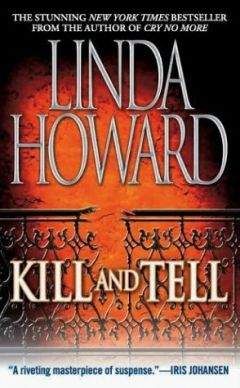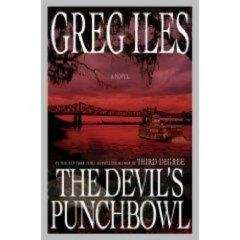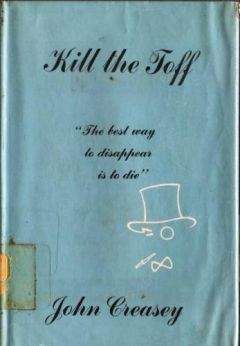Laughter rippled from one group of tourists, three prosperous-looking young men whose arms were clutched by glittering young women in cocktail dresses. As Dexter watched, a briskly walking man brushed past the group and went on his way, turning at the next street and disappearing from view, with at least one of the young men's wallets inside his shirt. Not one of the tourists realized anything had happened.
It was like watching a movie, as if he didn't inhabit the same world as the tourists. They were oblivious to him, looking past him, through him. Dexter shivered suddenly, despite the thick heat of a New Orleans summer night. He had been disconnected since Nam, but abruptly he felt even more distant, as if the tourists wouldn't be able to hear him even if he shouted.
It was a peculiar feeling, making him shiver again. He walked down Bourbon, glancing in the open doors as he passed, the music and laughter echoing as if from a distance. The foot traffic was heavier here, and cops on horseback clopped by, steel horseshoes ringing on the pavement. Dexter walked faster, looking for a dark alley where he could hunker down for a minute and shake this spooky feeling. This wasn't downtown, though, this was the Quarter, and alleys were usually entrances to courtyards. If they were private courtyards, the entrances were gated and locked. If the courtyard belonged to a restaurant, he wouldn't find any privacy there.
He reminded himself that he hadn't come to the Quarter for privacy; he had come precisely because Bourbon Street was so active, and he could lose himself in the foot traffic. All he needed to do was ignore the weird feeling and get on with business. Maybe leave New Orleans entirely, now that Medina was on his trail.
Medina. Dexter thought about it and realized what felt so wrong, what had spooked him. Medina wasn't anybody's dog. The man had principles. Things happened to people over the years, changed them, but it would take a real sea change to turn Rick Medina into a kill-for-hire man. Three alternative possibilities presented themselves. One: Medina had been lied to. That was the easiest explanation but possibly the most implausible because of Medina's personality. He wouldn't take kindly to being used, and if he ever found out, there would be hell to pay. Two: Medina was definitely hunting him, but for a third, unknown party. Perhaps the secret wasn't as well kept as he had thought. God knows it would make great ammunition. This possibility was way out there on the edge of conspiracy, but as someone had said, even paranoids have real enemies. Three: Medina was here for another reason entirely. It was mere chance that Dexter had seen and recognized him.
Yeah, sure.
Dexter reached St. Ann Street and turned down it, not looking in the windows of the voodoo shop as he walked past. That was some weird shit, and he had all the weirdness he could handle right now. Maybe he should have stayed on Bourbon; St. Ann was empty—
Medina stepped out in front of him, silenced .22 in hand.
Dexter stopped, looking into those calm blue eyes. His own pistol was stuck in the back of his waistband, and he knew he'd never be able to get to it in time. Death stared at him, and strangely he thought of Jeanette. He saw her sweet face, clearly remembered how she had hugged him so tightly the last time he'd seen her, and was humbled to realize how much she loved him. And, looking behind Medina, he realized abruptly how it was set up. There was a fourth scenario, one he had overlooked.
"Look ou—" he began, but Medina's finger had already tightened delicately on the trigger, and the bullet punched neatly into his forehead, shutting off thought and speech and life. Rick Medina whirled, going down on one knee, warned by the last words out of Dexter Whitlaw's mouth. He had the strong, lithe grace of a ballet dancer, but he was fifty-six years old, and his reflexes had slowed just a bit. He got off only one shot before two slugs hit him in the chest like sledgehammers. He collapsed on the uneven sidewalk, his body no longer responsive, his eyesight going even as he stared at the three shadowy figures looming over him. Used , he thought savagely. Set up and used . He felt a burst of fury, and then nothing.
A car pulled up to the curb, and the trunk was popped open. Quickly, the three men lifted Medina's body and stuffed it into the trunk. One remembered to scoop up the silenced .22 and toss it into the trunk with the body; one swiftly patted Dexter Whitlaw's pockets and shook his head at the other two. Then they all got into the car and drove sedately away, just as a man and a woman turned the corner from Bourbon Street and began walking toward Dexter Whitlaw's body.
The couple saw the man on the sidewalk, and the woman tugged on her husband's arm. "Let's not walk by that drunk," she said. Mellowed by a couple of Hurricanes, the man agreed, and they crossed the street to avoid coming so close to unpleasantness.
It was another twenty-three seconds before four young women, teetering on high heels, clutching sequined purses so tiny as to be useless, and giggling together over the male stripper they had just watched, wobbled their merry way down St. Ann and made the discovery that the man lying on the sidewalk had a hole in his forehead.
Their shrill screams tore through the music and laughter drifting over from Bourbon. Curious heads turned. A few men broke into a run, responding automatically to the sounds of female distress. More people followed, drawing the attention of a pair of patrolmen on horseback. Had he been alive, Dexter Whitlaw could have told them that when the action is going down, twenty-three seconds is an eon. Witnesses disappear, cars vanish, opportunities are lost, and the wash of time continues its endless scrubbing of the ineffectual marks people made.
Chapter 4
«^»
"Shit."
Detective Marc Chastain rubbed his unshaven face, feeling the bristly whiskers rasping against his hand. He yawned and sipped the hot coffee one of the patrolmen had handed him. It was three o'clock in the morning, which meant he'd had not quite three hours of sleep. He was inclined to feel grumpy but pushed the mood away. He was too controlled to let lack of sleep keep him from giving his full attention to the job. He could catch up on his sleep the next night, or the next; the poor bum lying on the uneven sidewalk didn't have that option.
One of the disadvantages of living in the Quarter—other than ancient wiring and even more ancient plumbing—was that if anything happened there, he was usually first on the scene, which meant it became his case. Hell, he had walked to the scene and still beat the next detective who had shown up, Shannon, by a good two minutes.
As bad as he felt, however, he was better off than the homeless man stiffening on the sidewalk. Blinking his gritty eyes, Marc surveyed the scene, scribbling notes on his pad. The victim was approximately six feet tall, a hundred and eighty-five pounds. Age fifty to fifty-five. Gray hair, brown eyes. He lay twisted half onto his right side, his right arm having caught behind him when he fell; the arm braced him, kept him from falling over. There was a small, neat black hole in the center of his forehead but no corresponding wound in the back of his head, meaning the bullet hadn't exited. A .22, Marc thought. Without the power to punch through the skull twice, the lead had wallowed around in the brain, destroying tissue as it went. No blood to speak of, meaning the victim had died instantly. Professionals used .22s, but they were also the cheapest and most readily available handgun, making them the favorites, the "Saturday night specials" used by punk stickup kids. Despite all the outcry to ban guns completely, Marc figured he had a better chance against a poorly aimed .22 bullet than he would against an eight-inch blade or a studded baseball bat, because when a bad guy got close enough to use one of those, he was dead serious and the results far more brutal.
He couldn't rule out drugs as the motive here, but generally pushers, whether individuals or gangs, preferred greater fire power. They liked street-sweepers because they thought it was impressive to throw out all that hot lead in a couple of seconds. A single neat round in the head wasn't their style, wasn't dramatic enough.
Marc lifted his head and looked around. The blindingly bright lights of television cameras glared at him, and he narrowed his eyes to filter out the light as he surveyed the crowd that had gathered. Four young women, dressed for a night on the town, had been segregated from everyone else; one of the women was weeping hysterically, and a medic was trying to calm her. Those four had discovered the body. A patrolman was talking to the three who were coherent, getting names, taking notes. Marc would get to the witnesses in a few minutes.
All the other people had been drawn by the screams of the young women, and the crowd had drawn the television cameras. He sighed. Usually, the murder of a homeless man barely rated a mention in the newspaper, much less television coverage. If a patrolman had discovered the body, there wouldn't be any circus. But New Orleans was a tourist town, and anything that involved tourists was news. Now the newspapers and television stations would be full of more stories about New Orleans's horrific murder rate.
Never mind that most of the murders were in the drug community, that the average citizen was as safe in New Orleans as anywhere else, assuming said citizen had brains enough to stay out of certain neighborhoods; a statistic was a statistic and therefore worthy of being intoned again and again by solemn talking heads. Under pressure from a now-frightened citizenry, perhaps more frightened by the threat of losing tourist dollars than any perceived danger to their own lives, the mayor would come down hard on the police commissioner. The commissioner would then come down hard on the chief, and the shit would filter down to every detective and patrolman in the city.
Wonderful.
He looked back down at the victim, committing every detail to memory. This time, he noticed a strange fold in the victim's shirt, a funny lump in the small of his back. Squatting beside the body, he used his pen to carefuly lift the shirt tail and expose the weapon tucked into the bum's waistband.
"Jesus," Shannon said, standing beside him. "Looks like an awful expensive piece for a bum to be carryin' around. Wonder where he stole it."
Marc shifted his body to block the television cameras. He took the evidence bag and, again using his pen, eased the pistol from the victim's waistband. "Glock 17," he murmured, studying the beautiful weapon. If a Glock had been stolen locally, the owner would have reported the theft, assuming he even knew one had occurred. A lot of people bought guns and put them up, and months would go by before they took the gun out again. Careless shits. If people were going to own a weapon, they owed it to themselves and their family to become proficient with the weapon, to practice regularly and keep the weapon in good condition, and to know where the hell it was.
He lifted the weapon and sniffed. It hadn't been fired; he didn't smell the stench of burned gunpowder, only the sharp, clean scents of metal, plastic, and gun oil. The weapon was in excellent condition, well cared for and maintained. He didn't check the clip, because he didn't want to blur any fingerprints, but he would bet it was full.
"Has it been fired?" Shannon asked.
"No." Marc deposited the weapon in the evidence bag, all the while studying the victim for other interesting details.
Possessing a Glock definitely raised the victim's status from ordinary street bum to unordinary street bum, which raised Marc's curiosity in direct proportion. Why would an ordinary street bum be packing a Glock? Drugs? Not likely. Street bums were users, not dealers. That was how they got to be street bums in the first place. So, say he stole the Glock, maybe to sell for drugs; why was he still packing it around?
A Glock would be easy to unload. Maybe he had felt he needed the protection, for all the good it had done him.
Why would he need protection? People who were worried about their safety made an effort not to live in the streets.
As he studied the victim, something… a memory… some sense of recognition… nagged at him. It wasn't the victim himself, but something about him. He let his eyes unfocus a little so he was seeing the entire body, not one detail at a time, and it hit him. Dirt.
The victim was dirty, the normal condition for street bums. But his face and hands looked as if they had been deliberately smeared. An image flashed in Marc's mind, and his head lifted sharply.
"What?" Shannon asked. He squatted beside Marc, dark eyebrows pinching together. He was a lean young black man, recently promoted to detective, sharp and tough and eager to learn.
"I think he's ex-military." Carefully, he began patting the victim's pockets, feeling for identification, but all the pockets were empty.
"Why's that?"
"Take a look at his face and hands."
Shannon studied the victim. He had done four years in the Army, so he had some experience himself.
"Camouflage," he said with faint astonishment. "He was hiding."
"Probably from whoever did him." Marc studied the sidewalk and street around them. Nothing in the Quarter was new; everything was stained with age. If the television cameras hadn't been there, he might not have seen it, but the bright lights lit up the scene like daylight. Even so, the dark splotches some ten feet away blended in with the wet sidewalk so that they were barely distinguishable.
"Take a look at this." He stood and moved over to the spots, and Shannon followed.
"More blood," Shannon said.
"Yeah, but I doubt it's the victim's. The head shot killed him instantly; he didn't bleed enough to fill a thimble."
Shannon looked over at the body. "But you said his weapon hadn't been fired. Where did this blood come from?"
"Did you read the patrolmen's notes?"
"Yeah, what about them?"
"They found four shell casings, all twenty-two caliber. And the victim has how many holes in him?"
"One. But he could have been fired at four times and been hit the last time."
"He had a Glock seventeen in his waistband. If someone was shooting at him and had already missed three times, don't you think he would at least have tried to shoot back? He wouldn't have just stood there while the first three shots were fired, so he was killed by the first one, second one for sure; any more than that, and he would have had time to react."
"So we have two, maybe three shots unaccounted for, and blood in another location."
"Right. It follows that whoever did our victim also shot the unknown blood donor, who may or may not be dead. Another body may turn up somewhere, though I don't see the logic in carrying one body away and leaving the second one here, unless the perps just didn't have enough time to grab the second body."
"Perps? Not one guy, then?"
"He would have to be pretty damn strong to pick up a dead guy. You know how it is. They flop all over the place."
"Plus they're dead weight," Shannon said, his face straight. Marc hid a chuckle, turning it into a cough so the television cameras wouldn't pick up the image of a callous cop laughing over the body. Cops had to laugh, otherwise they wouldn't be able to bear the carnage they saw.




